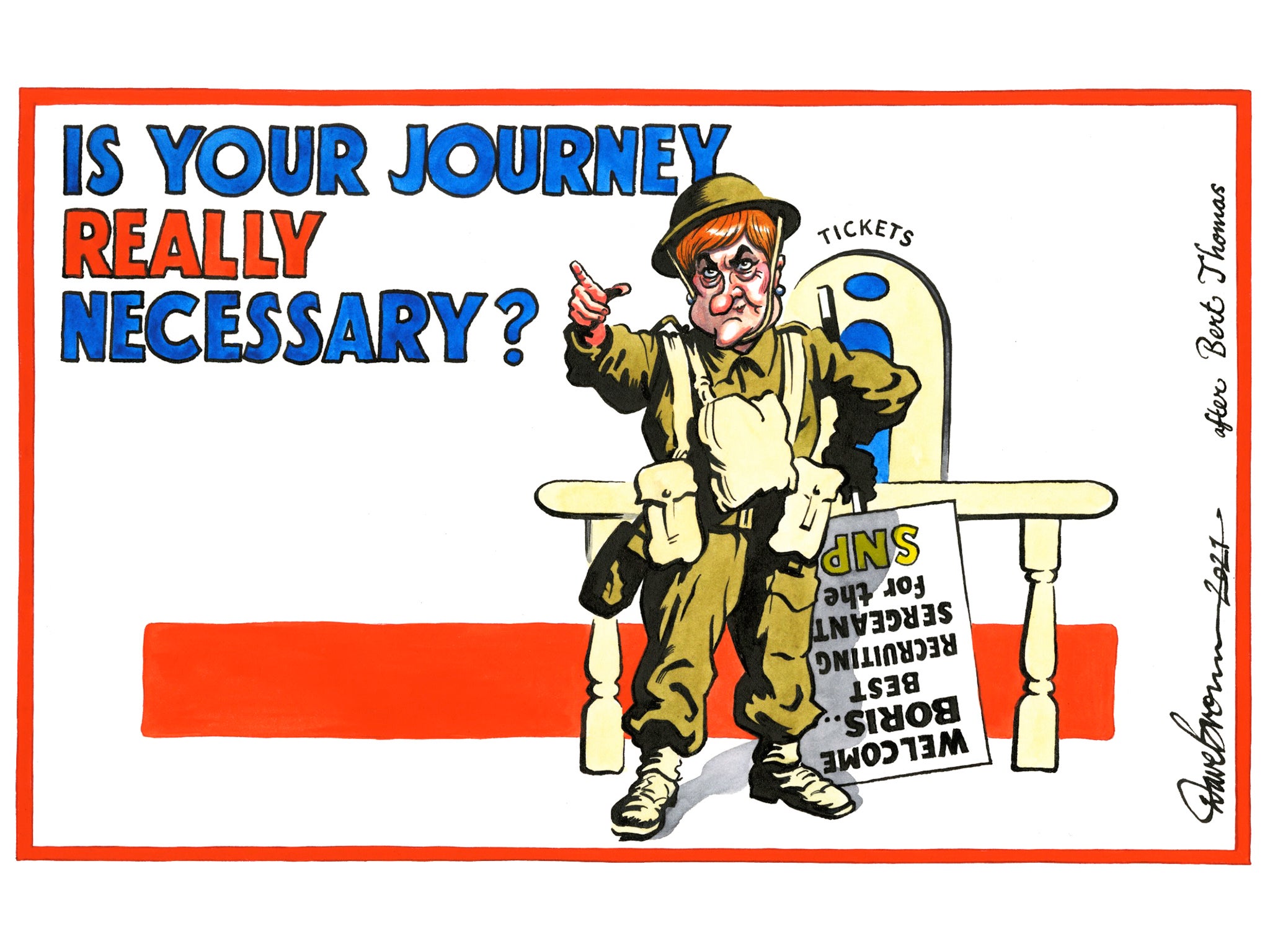According to Nicola Sturgeon, Boris Johnson’s visit to Scotland was not essential. Having said she was “not ecstatic” at the prime minister’s day trip, she pointed out that she herself sacrificed a journey to Aberdeen to see how the vaccination programme was getting on, because that too was not essential.
It is an arguable point. Certainly, the vaccinations and other work of the NHS, and virtually anything else for that matter, does not require the presence of Mr Johnson. Unlike Kim Jong-un’s celebrated “on-the-spot guidance” delivered on visits to the outdated factories and unproductive collective farms of North Korea, Mr Johnson’s insights are neither sought nor especially valuable. Our health workers can carry on without him.
However, it is also the case that such inspection of conditions on the ground are part of the prime minister’s job, and cannot be conducted from home. When he failed to turn up at last year’s floods, for example, Mr Johnson was rightly criticised for his apparent lack of concern; seeing for himself the state of flooded towns might have helped him better understand the nature of flood defences, as well as the human misery the rains brought. This year he did show his face, having presumably learnt his lesson.
Yet Mr Johnson is also the leader of the Conservative and Unionist Party and the, sometimes forgotten, minister for the union. The ministerial job description is to “ensure that all of government is acting on behalf of the entire United Kingdom: England, Northern Ireland, Scotland and Wales”. Politically, the informal remit is to “save the union”.
Mr Johnson’s presence in Scotland is far from essential to keep the UK together and avert Scottish independence. In fact, the presence of this quintessentially English figure, and one who carries more than a hint of contempt for Scotland, is damagingly counterproductive.
Mr Johnson, after all, has called devolution a “disaster” and refers to his more obviously competent and conscientious counterpart as “that bloody wee Jimmy Krankie woman”. He deliberately refers to the Scottish National Party as the “Scottish Nationalist Party”, which is hardly respectful. More substantively, his government has ignored the structures and assumptions designed to make devolution work, including the Sewel Convention, and reserved for Westminster repatriated powers from Brussels.
As the public face of Brexit (which Scotland rejected), the coronavirus response (where his ratings are poor) and the Conservatives (who haven’t won a majority of the Scottish vote since 1955), Mr Johnson is badly placed to win the argument for the union. The SNP might have some secret glee at the arrival of Bungling Boris coming to do his patronising schtick. It is like Bertie Wooster turning up in a kilt for the Highland Games – entertaining but not to be taken seriously.
The last time Scotland had a referendum on independence, the English Etonian prime minister of the day, David Cameron, wisely stayed in London and allowed the likes of Alistair Darling and Gordon Brown to make the case for a united Britain. It worked, if only just, and with the promise that the Tory government would make devolution deeper and better. That never materialised, in practice, and few, north or south of the border, believe that Mr Johnson would do any better. The outlook for the union looks bleak.




Join our commenting forum
Join thought-provoking conversations, follow other Independent readers and see their replies
Comments